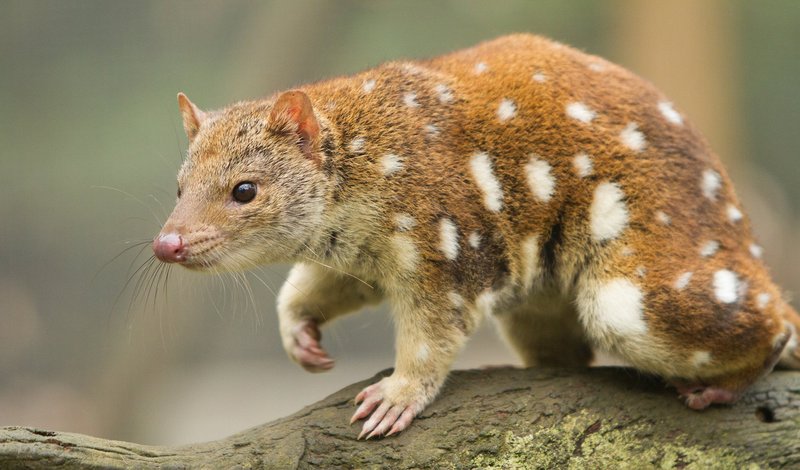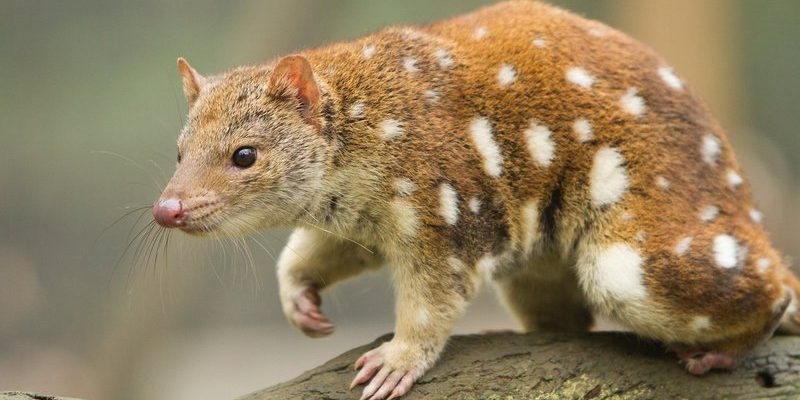
Let’s dive into the fascinating world of quolls and explore their behavior, habitat, and the real risks they might present. After all, understanding these little creatures can be quite enlightening—think of it like unlocking a hidden chapter in the book of Australian wildlife.
What Is a Quoll?
Quolls are native to Australia and New Guinea, and they belong to the Dasyuridae family, which includes other marsupials like the Tasmanian devil. These charming creatures come in four species: the eastern quoll, the western quoll, the northern quoll, and the southern quoll. Quolls are typically about the size of a domestic cat, but they have a much longer snout and a distinctive coat covered in white spots.
Because they are nocturnal, quolls are mainly active at night, scuttling through the underbrush and climbing trees in search of food. Their diet consists of insects, small mammals, reptiles, and even some fruits. This means they play a vital role in the ecosystem, keeping pest populations in check. You might say they’re like the little custodians of the forest, tidying up the wildlife mess.
How Do Quolls Interact with Humans?
Quolls are generally shy and elusive creatures, preferring to avoid human interaction. Most of the time, they’ll take off at the first sign of humans nearby. They have a natural instinct to flee rather than fight. If you stumble upon a quoll in the wild, don’t expect it to linger or pose any sort of threat to you.
That said, they can sometimes make their way into urban areas, especially where their natural habitat is being encroached upon. Incidents of quolls scavenging for food in backyards or gardens can happen, but these situations are usually harmless. Picture this: you’re outside enjoying a cup of coffee, and a little quoll pops by to investigate your compost bin. More curious than dangerous, right?
Can Quolls Be Aggressive?
Now, let’s address the elephant in the room: the potential for aggression. The good news is that quolls are not naturally aggressive towards humans. However, like many animals, if they feel threatened or cornered, they might defend themselves. Think of it like a cat; they might hiss or swat if they feel scared.
In rare cases, if a quoll is handled poorly or feels trapped, it might bite. But this is quite uncommon. So, while they have sharp teeth and claws, the chances of a quoll being dangerous to humans are slim. They are more likely to run away from confrontation than to engage in any aggressive behavior.
What About Their Health Risks?
Another important aspect to consider is the health risks associated with quolls. While they’re not dangerous in terms of aggression, quolls can carry diseases that might impact humans, much like other wild animals. For example, they can be hosts for parasites or diseases such as toxoplasmosis.
This doesn’t mean you should fear them; rather, it’s a gentle reminder to keep a healthy distance from wildlife. If you spot a quoll in your backyard, admire it from afar. Avoid feeding or trying to interact with it, as this can disrupt its natural behavior and increase the risk of disease transmission.
Conservation Status and Human Impact
Quolls are fascinating little creatures, but they are facing challenges due to habitat loss, introduced predators, and other environmental pressures. Human activities are leading to a decline in their populations, which should concern us all. When we compromise their habitats, we risk losing not just the quolls, but the entire ecosystem that relies on them.
By protecting natural areas and being mindful of how we interact with wildlife, we can help ensure that quolls and their habitats endure for future generations. The best way to keep these creatures safe is by appreciating them from a distance and promoting conservation efforts that allow them to thrive in their natural environments.
Summing It Up: Are Quolls Dangerous?
So, are quolls dangerous to humans? Overall, the answer is no. These cute, spotted marsupials are not aggressive and generally prefer to avoid us. Their natural behaviors make them fascinating to observe, but we should always respect their space.
If you find yourself lucky enough to see a quoll, enjoy the moment, and remember: they’re not out to get you. Instead, they’re simply part of the amazing tapestry of wildlife that makes our planet so special. By understanding and respecting them, we can coexist peacefully, all while helping to protect their populations for the future.

